

Looking for a book to improve your teaching practice and help you serve your students? These books cover a wide spectrum that are sure to equip and empower you.
In many ways, we educators live in an exciting time to be in the classroom and work with students.
Examples:
If you want to capitalize on any of the above, there’s still one indisputable source.
Books.
Sure, we have ebooks. We have blogs and podcasts and videos and a wide array of media to consume.
But there’s still power in the book. In an author dedicating her entire being to creating something valuable to share. In the reader blocking out distractions to sit with new ideas for hours on end.
Books are still powerful.
The right books in the hands of educators can have life-altering and world-changing implications for their students.
I have a long list of books I’m excited to read — and books I’ve read that I’m still excited about!
In this post, you’ll find more than 20 books that I think will empower educators.
Whether you’re reading in the summer, going back to school, taking a brief break during the year or otherwise, I’m sure these books will help you grow and better serve others!
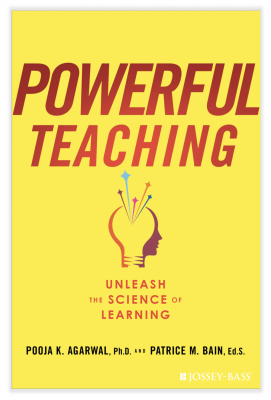 The subtitle of this book says everything for me — “Unleash the Science of Learning.” When we know what the brain craves in learning, we can optimize our instruction to make learning stick. The authors dig into effective practices, like retrieval practice, spaced practice, interleaving and feedback-driven metacognition. (have a copy, have read parts of it)
The subtitle of this book says everything for me — “Unleash the Science of Learning.” When we know what the brain craves in learning, we can optimize our instruction to make learning stick. The authors dig into effective practices, like retrieval practice, spaced practice, interleaving and feedback-driven metacognition. (have a copy, have read parts of it)
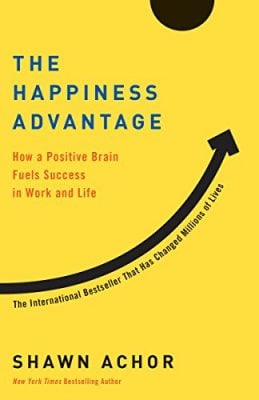 Achor has studied positive psychology. The research shows that it’s not all fluffy, ineffective stuff that makes you feel better superficially. Happiness makes us more effective, more efficient, more creative — essentially, better versions of ourselves. He offers practical ideas that can be used in our everyday lives and in classrooms. (have a copy, finished about half)
Achor has studied positive psychology. The research shows that it’s not all fluffy, ineffective stuff that makes you feel better superficially. Happiness makes us more effective, more efficient, more creative — essentially, better versions of ourselves. He offers practical ideas that can be used in our everyday lives and in classrooms. (have a copy, finished about half)
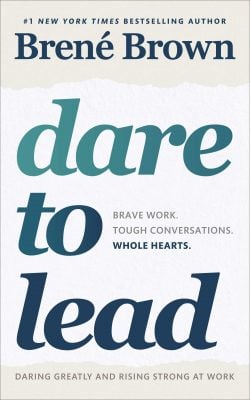 The introduction to this book reads, “A leader is anyone who takes responsibility for recognizing the potential in people and ideas, and has the courage to develop that potential.” Sounds like she’s talking directly to educators! In a time where we need more courageous conversations, Brown gives us steps we can take to make our schools better — and help students. (have a copy, haven’t read it yet)
The introduction to this book reads, “A leader is anyone who takes responsibility for recognizing the potential in people and ideas, and has the courage to develop that potential.” Sounds like she’s talking directly to educators! In a time where we need more courageous conversations, Brown gives us steps we can take to make our schools better — and help students. (have a copy, haven’t read it yet)
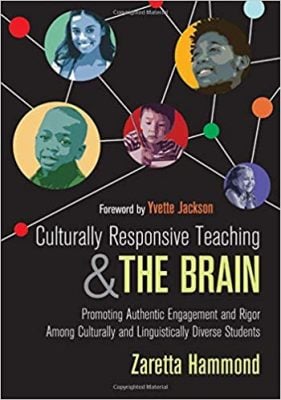 If we want to reach students in diverse classrooms and close the achievement gap, Hammond writes, we need an effective framework. She offers one that’s based on neuroscience — on how the brain actually functions and learns — to help us create what she calls “brain-compatible culturally responsive instruction.” I learned about this book from a Cult of Pedagogy book review, which says: “… it won’t make teachers defensive. Rather than attacking teachers for taking the wrong approach, Hammond simply shows us why some methods are ineffective, then explains why a different approach works better.” (on my list to read)
If we want to reach students in diverse classrooms and close the achievement gap, Hammond writes, we need an effective framework. She offers one that’s based on neuroscience — on how the brain actually functions and learns — to help us create what she calls “brain-compatible culturally responsive instruction.” I learned about this book from a Cult of Pedagogy book review, which says: “… it won’t make teachers defensive. Rather than attacking teachers for taking the wrong approach, Hammond simply shows us why some methods are ineffective, then explains why a different approach works better.” (on my list to read)
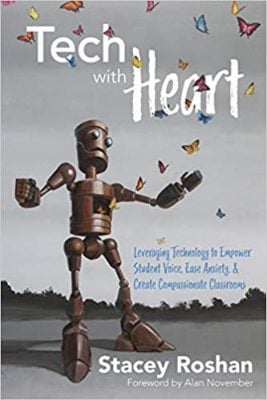 Roshan started flipping her math classroom before flipped classrooms were buzzy. She saw her students succeeding, but she also noticed something she didn’t quite expect. It helped her to be more empathetic to her students. It empowered shy voices. She used tech, which is portrayed to be cold and heartless, to be more compassionate to her students. This book shares her story and what has worked for her. (have a copy, have read parts of it)
Roshan started flipping her math classroom before flipped classrooms were buzzy. She saw her students succeeding, but she also noticed something she didn’t quite expect. It helped her to be more empathetic to her students. It empowered shy voices. She used tech, which is portrayed to be cold and heartless, to be more compassionate to her students. This book shares her story and what has worked for her. (have a copy, have read parts of it)
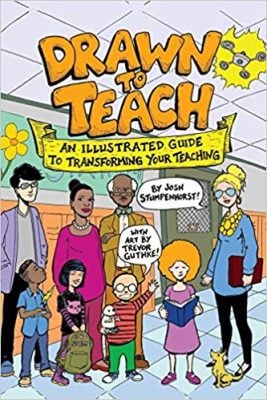 A lot of education books look the same. Honestly, many repeat the same message. This book really breaks the mold of education books in many ways. For one, the art by Trevor Guthke gives it a unique soul. The illustrations and comic strip narratives uncover nuance in teaching that many books miss. For another, Stumpenhorst writes honestly about tough topics, like mental health and criticism. I believe any teacher who reads this book will be enriched by it. (have a copy, have read parts of it)
A lot of education books look the same. Honestly, many repeat the same message. This book really breaks the mold of education books in many ways. For one, the art by Trevor Guthke gives it a unique soul. The illustrations and comic strip narratives uncover nuance in teaching that many books miss. For another, Stumpenhorst writes honestly about tough topics, like mental health and criticism. I believe any teacher who reads this book will be enriched by it. (have a copy, have read parts of it)
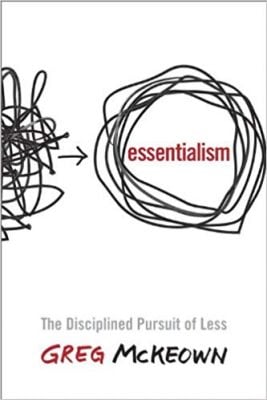 If you’re in education, you’ve probably felt overcommitted, like you can’t keep up with everything you should do — or can be doing. If you want to take some control back, McKeown suggests the Way of the Essentialist. It isn’t about getting more done in less time, he writes. It’s about getting only the right things done. And sometimes, that means saying no. Even if we feel like we don’t have control of all that’s put on our plate, McKeown shares ways to manage and regain some sanity. (have audiobook, finished twice)
If you’re in education, you’ve probably felt overcommitted, like you can’t keep up with everything you should do — or can be doing. If you want to take some control back, McKeown suggests the Way of the Essentialist. It isn’t about getting more done in less time, he writes. It’s about getting only the right things done. And sometimes, that means saying no. Even if we feel like we don’t have control of all that’s put on our plate, McKeown shares ways to manage and regain some sanity. (have audiobook, finished twice)
 Our phones have lots of power in our lives. But have we decided how we want to wield that power? When social media and mobile apps are designed with brain science to hijack our attention, how can we regain control? Newport has advice that will help us as humans educating children — and that will help the children we educate. Learning about the “Digital Declutter” is worth the purchase price of the book alone. (have audiobook, finished)
Our phones have lots of power in our lives. But have we decided how we want to wield that power? When social media and mobile apps are designed with brain science to hijack our attention, how can we regain control? Newport has advice that will help us as humans educating children — and that will help the children we educate. Learning about the “Digital Declutter” is worth the purchase price of the book alone. (have audiobook, finished)
 If you think the children in your classroom (or adults you work with!) are distracted and mentally absent, you’re probably right. There are steps you can take, though. Srinmivasan suggests ways to use mindfulness to “overcome challenges faced during the school day”. It’s not a new book, but it’s written by a practicing educator with a focus on the K-12 classroom. I found this one, too, from a Cult of Pedagogy book review. (on my list to read)
If you think the children in your classroom (or adults you work with!) are distracted and mentally absent, you’re probably right. There are steps you can take, though. Srinmivasan suggests ways to use mindfulness to “overcome challenges faced during the school day”. It’s not a new book, but it’s written by a practicing educator with a focus on the K-12 classroom. I found this one, too, from a Cult of Pedagogy book review. (on my list to read)
 Wellness is an important topic for anyone, but especially for educators. If we want to give our best to our students, we have to be at our best physically and mentally. The foundation of that is a good night of sleep. Stevenson provides 21 strategies to get a better night’s sleep. It’ll help you be more mentally sharp, stay more physically fit, and fight off illness. (on my list to read)
Wellness is an important topic for anyone, but especially for educators. If we want to give our best to our students, we have to be at our best physically and mentally. The foundation of that is a good night of sleep. Stevenson provides 21 strategies to get a better night’s sleep. It’ll help you be more mentally sharp, stay more physically fit, and fight off illness. (on my list to read)
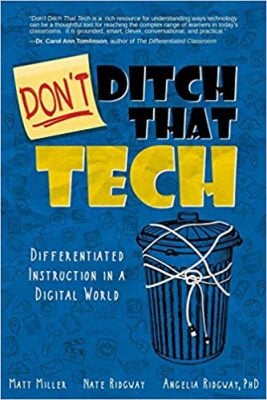 If you believe in differentiated instruction but need some guidance — especially with how tech can enhance it — this book is for you! I wrote this book with son/mother team Nate Ridgway, a high school teacher, and Angelia Ridgway, an education professor. We provide practical ways to differentiate instruction through content, engagement and metacognition. Dr. Carol Ann Tomlinson called it “grounded, smart, clever, conversational, and practical.”
If you believe in differentiated instruction but need some guidance — especially with how tech can enhance it — this book is for you! I wrote this book with son/mother team Nate Ridgway, a high school teacher, and Angelia Ridgway, an education professor. We provide practical ways to differentiate instruction through content, engagement and metacognition. Dr. Carol Ann Tomlinson called it “grounded, smart, clever, conversational, and practical.”
Here are more suggestions from other educators of books worth reading! You can see the whole thread on Twitter (whether you have a Twitter account or not) by clicking here.
First one done is Small Teaching by @LangOnCourse
— Chris Cocek (@ChrisCocek) July 9, 2019
I can’t wait to read that!!! @sylviaduckworth is amazing! I have heard about her on several podcasts…#shukesandgiff #EduDuctTape
I have that on my #edubucketlist for this school year! pic.twitter.com/CoaDEn2icn— Jennifer Conti (@Conti_jen) July 9, 2019
— Dr. Frank O’Neill, COI (@growgraymatter) July 10, 2019
— Yelena Melnichenko (@yelena585) July 9, 2019
Just finished #BlackAntsandBuddhists by Mary Cowhey #relationshipsmatter
— Christina Ethridge (@cmethrid) July 8, 2019
Here’s my stack. What are you reading this summer #4OCFpln #oredchat #MLmagical @MSD549C Enjoy Today with a good book! 👍😊💜 pic.twitter.com/wiqn20T8Ng
— Jamie Leach (@LeachTeach4) July 10, 2019
We are doing a book chat on From Striving to Thriving by @AnnieTWard and @Stephharvey49. The first three chapters are 👍🏼.
— Kathy Murphy (@kamurf4444) July 8, 2019
For notifications of new Ditch That Textbook content and helpful links:
Interested in having Matt present at your event or school? Contact him by e-mail!
Matt is scheduled to present at the following upcoming events:
[getnoticed-event-table scope=”upcoming” max=”15″ expanding=”false”]

Session expired
Please log in again. The login page will open in a new tab. After logging in you can close it and return to this page.